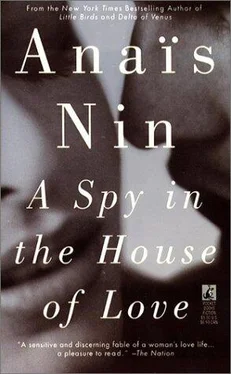“I’ve had five years of war as a rear gunner. Been to India a couple of years, been to North Africa, slept in the desert, crashed several times, made about one hundred missions, saw all kinds of things… Men dying, men yelling when they’re trapped in burning planes. Their arms charred, their hands like claws of animals. The first time I was sent to the field after a crash…the smell of burning flesh. It’s sweet and sickening, and it sticks to you for days. You can’t wash it off. You can’t get rid of it. It haunts you. We had good laughs, though, laughs all the time. We laughed plenty. We would steal prostitutes and push them into the beds of the men who didn’t like women. We had drunks that lasted several days. I liked that life. India. I’d like to go back. This life here, what people talk about, what they do, think, bores me. I liked sleeping in the desert. I saw a black woman giving birth… She worked on the fields carrying dirt for a new airfield. She stopped carrying dirt to give birth under the wing of the plane, just like that, and then bound the kid in some rags and went back to work. Funny to see the big plane, so modern, and this half naked black woman giving birth and then continuing to carry dirt in pails for an airfield. You know, only two of us came back alive of the bunch I started with. We played pranks, though. My buddies always warned me: ‘Don’t get grounded; once you’re grounded you’re done for.’ Well, they grounded me too. Too many rear gunners in the service. I didn’t want to come home. What’s civilian life? Good for old maids. It’s a rut. It’s drab. Look at this: the young girls giggle, giggle at nothing. The boys are after me. Nothing ever happens. They don’t laugh hard, and they don’t yell. They don’t get hurt, and they don’t die, and they don’t laugh either.”
Always something in his eyes which she could not read, something he had seen but would not talk about.
“I like you because you hate this place, and because you don’t giggle,” he said taking her hand with gentleness.
They walked endlessly, tirelessly, along the beach, until there were no more houses, no more cared-for gardens, no more people, until the beach became wild and showed no footsteps, until the debris from the sea lay “like a bombed museum,” he said.
I’m glad I found a woman who walks my stride as you do,” he said. “And who hates what I hate.”
As they bicycled homeward he looked elated, his smooth skin flushed with sun and pleasure. The slight trembling of his gestures had vanished.
The fireflies were so numerous they flew into their faces.
“In South America,” said Sabina, “the women wear fireflies in their hair, but fireflies stop shining when they go to sleep so now and then the women have to rub the fireflies to keep them awake.”
John laughed.
At the door of the cottage where she stayed, he hesitated.
He could see it was a rooming house in a private family’s jurisdiction. She made no movement but fixed her enlarged, velvet-pupiled eyes on his and held them, as if to subdue the panic in them.
He said in a very low voice: “I wish I could stay with you.” And then bent over to kiss her with a fraternal kiss, missing her mouth.
“You can if you wish.”
“ They will hear me.”
“You know a great deal about war,” said Sabina, “but I know a great deal about peace. There’s a way you can come in and they will never hear you.”
“Is that true?” But he was not reassured and she saw that he had merely shifted his mistrust of the critical family to mistrust of her knowledge of intrigue which made her a redoubtable opponent.
She was silent and made a gesture of abdication, starting to run towards the house. It was then he grasped her and kissed her almost desperately, digging his nervous, lithe fingers into her shoulders, into her hair, grasping her hair as if he were drowning, to hold her head against his as if she might escape his grasp.
“Let me come in with you.”
“Then take off your shoes,” she whispered.
He followed her.
“My room is on the first floor. Keep in step with me as we go up the stairs; they creak. But it will sound like one person.” He smiled.
When they reached her room, and she closed the door, he examined his surroundings as if to assure himself he had not fallen into an enemy trap.
His caresses were so delicate that they were almost like a teasing, an evanescent challenge which she feared to respond to as it might vanish. His fingers teased her, and withdrew when they had aroused her, his mouth teased her and then eluded hers, his face and body came so near, espoused her every limb and then slid away into the darkness. He would seek every curve and nook he could exert the pressure of his warm slender body against and suddenly lie still, leaving her in suspense. When he took her mouth he moved away from her hands, when she answered the pressure of his thighs, he ceased to exert it. Nowhere would he allow a long enough fusion, but tasting every embrace, every area of her body and then deserting it, as if to ignite only and then elude the final welding. A teasing, warm, trembling, elusive short circuit of the senses as mobile and restless as he had been all day, and here at night, with the street lamp revealing their nudity but not his eyes, she was aroused to an almost unbearable expectation of pleasure. He had made of her body a bush of roses of Sharon, exfoliating pollen, each prepared for delight.
So long delayed, so long teased that when possession came it avenged the waiting by a long, prolonged, deep thrusting ecstasy.
The trembling passed into her body. She had amalgamated his anxieties, she had absorbed his delicate skin, his dazzling eyes.
The moment of ecstasy had barely ended when he moved away and he murmured: Life is flying, flying.
“This is flying,” said Sabina. But she saw his body lying there no longer throbbing, and knew she was alone in her feeling, that this moment contained all the speed, all the altitude, all the space she wanted.
Almost immediately he began to talk in the dark, about burning planes, about going out to find the fragments of the living ones, to check on the dead.
“Some die silent,” he said. “You know by the look in their eyes that they are going to die. Some die yelling, and you have to turn your face away and not look into their eyes. When I was being trained, you know, the first thing they told me: ‘Never look into a dying man’s eyes.’”
“But you did,” said Sabina.
“No, I didn’t, I didn’t.”
“But I know you did. I can see it in your eyes; you did look into dying men’s eyes, the first time perhaps…”
She could see him so clearly, at seventeen, not yet a man, with the delicate skin of a girl, the finely carved features, the small straight nose, the mouth of a woman, a shy laugh, something very tender about the whole face and body, looking into the eyes of the dying.
“The man who trained me said: ‘Never look into the eyes of the dying or you’ll go mad.’ Do you think I’m mad? Is that what you mean?”
“You’re not mad. You’re very hurt, and very frightened, and very desperate, and you feel you have no right to live, to enjoy, because your friends are dead or dying, or flying still. Isn’t that it?”
“I wish I were there now, drinking with them, flying, seeing new countries, new faces, sleeping in the desert, feeling you may die any moment and so you must drink fast, and fight hard, and laugh hard. I wish I were there now, instead of here, being bad.”
“Being bad?”
“This is being bad, isn’t it? You can’t say it isn’t, can you?” He slipped out of bed and dressed. His words had destroyed her elation. She covered herself up to her chin with the sheet and lay silent.
Читать дальше












